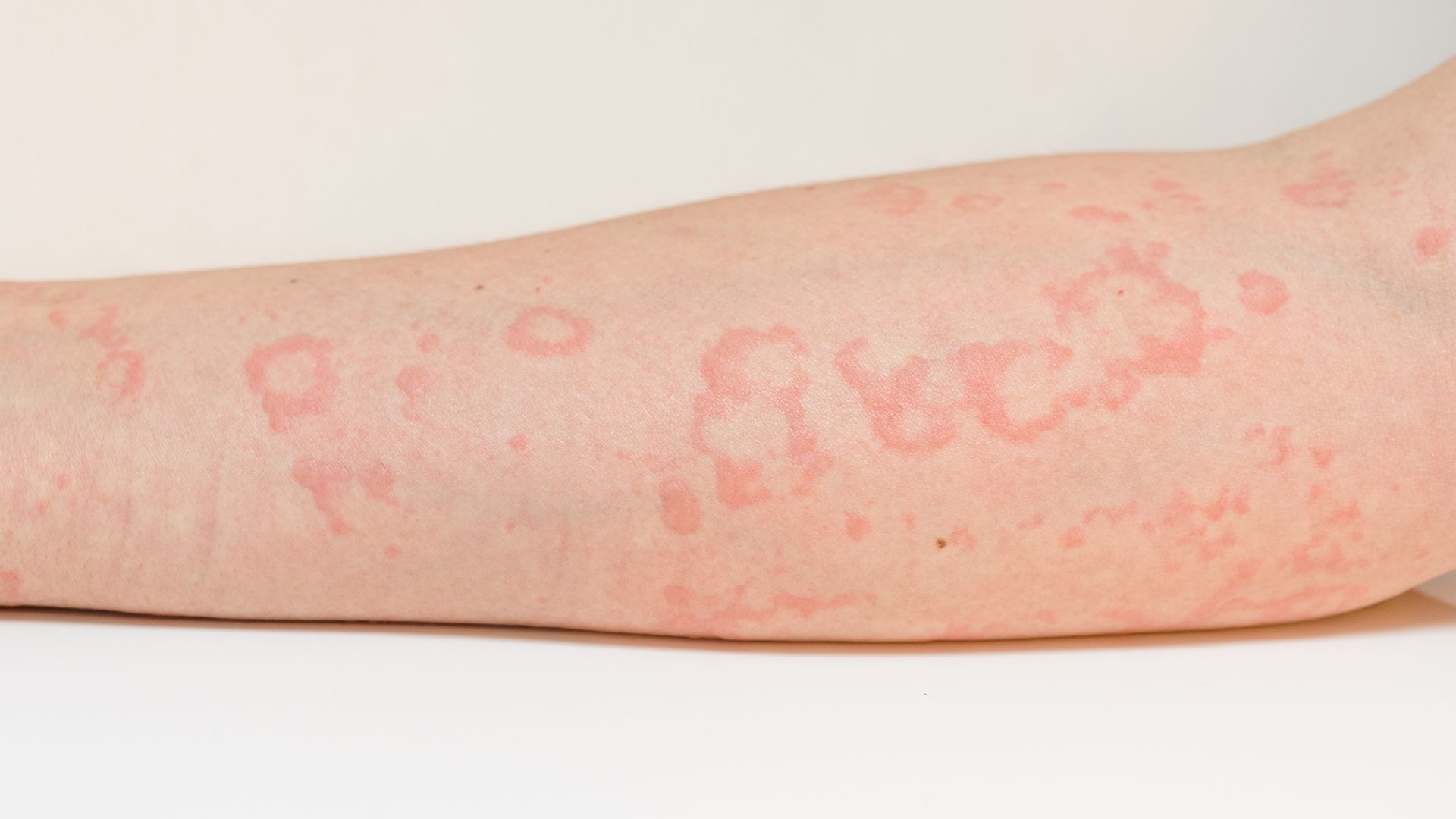Updated on October 23, 2024
Chronic hives can be caused by many factors including stress, infection, temperature, or even an immune issue.

Transcript
Having hives can be uncomfortable. They can be itchy. Like, really itchy. They can make it hard to sleep and disrupt your daily life.
[UPBEAT MUSIC] For most, hives tend to go away pretty quickly on their own.
But for others, like those with chronic hives, they can stick around for weeks on end. Sometimes even longer, like months or years.
But what is a hive, anyway? TANIA ELLIOTT: Put simply, they're a type of swelling on your skin. MONICA SANDHU: They may be itchy,
but they might also burn or sting. TANIA ELLIOTT: Some are small, like the size of a pinhead, while others can be much larger.
You might hear your doctor refer to them as urticaria. That's another name for hives. It comes from the Latin words meaning nettle and to burn.
Generally, hives occur when your body is reacting to an allergen. Your body's immune system senses something
it doesn't like. And in response, it releases chemicals called histamines to get rid of the allergen. All those histamines can cause your body
to have an allergic reaction. In turn, causing hives and swelling. For chronic hives, doctors still
aren't exactly sure what causes them in most cases. In fact, when we aren't sure what the cause of chronic hives
is-- The condition is then referred to as chronic idiopathic urticaria. Idiopathic is a fancy way of saying, unknown.
It could be from any number of things. An immune issue, stress, an infection, the heat
or the cold, or an underlying illness, just to name a few. If you have hives that are severe or that have stuck around for days,
you should consult an allergist. Together, you can develop a plan to help you find relief. [UPBEAT MUSIC]




